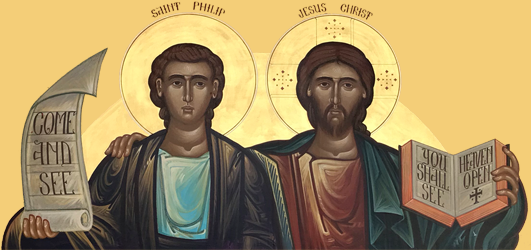“When you reap the harvest of your land, you shall not wholly reap the corners of your field, nor shall you gather the gleanings of your harvest. … [Y]ou shall leave them for the poor and the resident alien: I am the Lord your God.” (OSB)
As we noted last week, the calling of the royal priesthood touches every aspect of the life of God’s people. Just as with human sexuality, so the call to embody true human life touches directly on the topic of “economics.” This topic has also been twisted in recent generations to turn the Biblical and Patristic teaching into a justification for immoral, unjust, and catastrophic political and economic ideas. While we certainly must reject that perverted application, a commitment to political and economic freedom vis-à-vis the modern secular state is not a license to shirk the weight of what God is calling us to in Holy Scripture.
The Leviticus text looks ahead to when Israel will inhabit the Promised Land. While the Land will require faith and effort to enter and conquer, the Land is in every way a divine gift. The Land does not “belong” to Israel; rather, it is God’s, and Israel’s remaining in it is contingent upon their faithfulness to the Covenant. So also with the rain that God will send to water the Land such that it produces crops—this is divine gift contingent upon Israel’s faithfulness (Deut 28:12, 23-24). This has profound implications for how Israel is to understand “ownership” and their relationship to material possessions. If all good things are gifts of God, the Father of Lights, and Israel is a spiritual commonwealth and brotherhood, then all that God gives does not have just the immediate recipient in view, but the whole people of God, and especially those who are on the margins.
The people of God must never view “wealth and poverty” as a purely material question, because this would lead to a kind of functional economic atheism. For the Israelite farmer to try to “get as much as possible” from the Land would involve a mentality that ultimately precludes faith—that God is the source of the Land and its blessings.
And so, God reinforces the life of faith and trust among His people by instituting a tithing system—a tithe of the Firstfruits goes to God Himself, and a tithe goes to the poor and the resident alien (see Deut 26). As Clement of Alexandria says, “[T]he principle of tithing crops and flocks was an education in honoring the divine. We are not to be totally absorbed by profit but to share humanely with the neighbor as well” (Stromateis 2.86.1 [ACC3, 189]).
God further reinforces this through the Sabbatical Year and the Jubilee remission of debts (Lev 25). Every seventh year, Israel is to let the land “rest,” not cultivating it, and so rely upon God’s provision for them that year. Every 50th year, all debts are to be forgiven, and all land that has been transacted and changed hands is to be returned to the original family to whom it was apportioned. This will preserve the economic balance of the people by not allowing the “concentration” of land and wealth in the hands of an elite few. God has delivered Israel from Egyptian slavery so that they may be free, not so that they might be oppressed by usury, debt, and slavery to their fellow Israelites (Lev 26:38).
It is in the light of this Biblical teaching that St. Basil (To the Rich [PPS 38]) calls “the rich” to regard their possessions, not as their own, but as gifts from God that belong to “the poor.” Wealth acquired unjustly is blasphemy, just as is hording and withholding resources that God has given us for the benefit of others.

